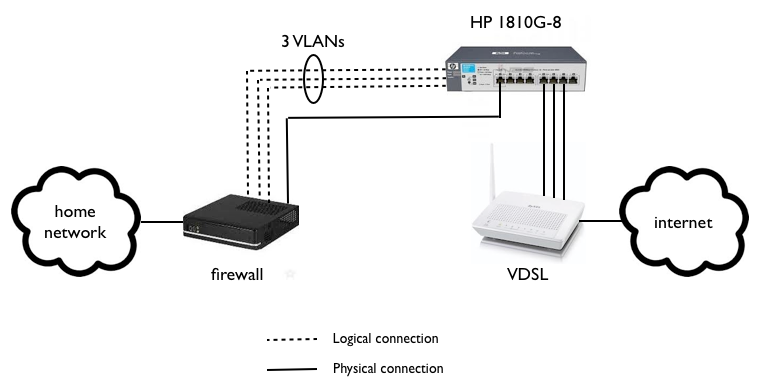Upgrading my firewall to OpenBSD 5.3 required updating my “multihoming-with-single-ISP” patch (see previous and original posts), as dhclient-script is no longer used. Instead, there is a new file, kroute.c. Luckily, moving the functionality from the shell script into C code was quite straightforward.
Here is the current patch to /usr/src/sbin/dhclient:
--- dhclient.c.orig 2013-08-02 10:17:29.000000000 +0300
+++ dhclient.c 2013-08-02 10:17:29.000000000 +0300
@@ -858,7 +858,10 @@
client->xid = arc4random();
make_request(client->active);
- if (client->active->options[DHO_DHCP_SERVER_IDENTIFIER].len == 4) {
+ /*if (client->active->options[DHO_DHCP_SERVER_IDENTIFIER].len == 4) {*/
+ if (0 && client->active->options[DHO_DHCP_SERVER_IDENTIFIER].len == 4) {
memcpy(&client->destination.s_addr,
client->active->options[DHO_DHCP_SERVER_IDENTIFIER].data,
client->active->options[DHO_DHCP_SERVER_IDENTIFIER].len);
--- kroute.c.orig 2013-08-02 10:17:29.000000000 +0300
+++ kroute.c 2013-08-02 20:20:42.000000000 +0300
@@ -256,6 +256,9 @@
struct sockaddr_rtlabel label;
struct iovec iov[5];
int s, len, i, iovcnt = 0;
+ char buf[256];
/*
* Add a default route via the specified address.
@@ -339,6 +342,17 @@
iov[iovcnt].iov_base = &label;
iov[iovcnt++].iov_len = sizeof(label);
+ /* Update next hop to pf route-to rules */
+ snprintf(buf, 256, "/sbin/pfctl -t gw_%s -T flush", ifi->name);
+ if (system(buf))
+ warning("failed to flush pf table: %s", strerror(errno));
+ snprintf(buf, 256, "/sbin/pfctl -t gw_%s -T add %s", ifi->name,
+ inet_ntoa(gateway.sin_addr));
+ if (system(buf))
+ warning("failed to add to pf table: %s", strerror(errno));
+
/* Check for EEXIST since other dhclient may not be done. */
for (i = 0; i < 5; i++) {
if (writev(s, iov, iovcnt) != -1)
Here is the patch to /etc/rc:
--- rc.orig 2013-08-02 10:17:29.000000000 +0300
+++ rc 2013-08-02 10:17:29.000000000 +0300
@@ -357,6 +357,14 @@
mv -f /etc/resolv.conf.save /etc/resolv.conf
touch /etc/resolv.conf
fi
+
+# Allow em0 to receive vlan packets with different MAC addresses
+ifconfig em0 up
+ifconfig bridge0 create
+brconfig bridge0 add em0
+
. /etc/netstart
echo rekey > /dev/arandom # any write triggers an RC4 rekey
@@ -370,6 +378,16 @@
fi
fi
+# Initialise next hops for pf's route-to rules
+pfctl -t gw_vlan201 -T add \
+ `netstat -f inet -rn | grep default | grep vlan201 | awk '{print $2}'`
+pfctl -t gw_vlan202 -T add \
+ `netstat -f inet -T1 -rn | grep default | grep vlan202 | awk '{print $2}'`
+pfctl -t gw_vlan203 -T add \
+ `netstat -f inet -T2 -rn | grep default | grep vlan203 | awk '{print $2}'`
+
mount -s /usr >/dev/null 2>&1
mount -s /var >/dev/null 2>&1
And finally, this is a working /etc/pf.conf:
###############################################################################
# Macros
###############################################################################
if_int = "re0"
if_ext1 = "vlan201"
if_ext2 = "vlan202"
if_ext3 = "vlan203"
if_extv6 = "gif0"
all_ifs = "{" $if_int $if_ext1 $if_ext2 $if_ext3 $if_extv6 "}"
ext_ifs = "{" $if_ext1 $if_ext2 $if_ext3 $if_extv6 "}"
ext_ifs_v4 = "{" $if_ext1 $if_ext2 $if_ext3 "}"
ext_ifs_v6 = "{" $if_extv6 "}"
if_int_v4 = "10.0.0.xx"
home_net_v4 = "10.0.0.0/24"
if_int_v6ll = "fe80::xxx"
if_int_v6 = "2001:xxx"
if_ext_v6 = "2001:xxx"
home_net_v6 = "2001:xxx::/64"
core7 = "10.0.0.xx"
ps3 = "10.0.0.xx"
###############################################################################
# Tables
###############################################################################
table persist {}
table persist {}
table persist {}
table const persist { \
127.0.0.0/8 \
10.0.0.0/8 \
172.16.0.0/12 \
192.168.0.0/16 \
}
table const persist { \
x.x.x.x \
}
table const persist { \
x.x.x.x \
}
###############################################################################
# Options
###############################################################################
set skip on lo0
set block-policy return
set loginterface $if_ext1
set state-policy if-bound
###############################################################################
# Packet normalisation
###############################################################################
match on $if_ext1 all scrub (random-id reassemble tcp)
match on $if_ext2 all scrub (random-id reassemble tcp)
match on $if_ext3 all scrub (random-id)
## NOTE: "reassemble tcp" breaks PS3 downloads and may break something else too
###############################################################################
# Translation/redirection rules
###############################################################################
# FTP proxy states need to override the rules below
anchor "ftp-proxy/*"
# NAT
match out on $if_ext3 inet from $ps3 to any nat-to $if_ext3 static-port
match in on $if_ext3 inet from any to $if_ext3 rdr-to $ps3 rtable 0
match out on $if_ext2 inet from $core7 to any nat-to $if_ext2 static-port
match in on $if_ext2 inet from any to $if_ext2 rdr-to $core7 rtable 0
match out on $if_ext1 from $home_net_v4 nat-to ($if_ext1)
###############################################################################
# Filter rules
###############################################################################
##
## GENERAL
##
# Block and log everything by default
block log all
# Antispoofing on all interfaces
antispoof quick for $all_ifs
# Block private addresses on external interfaces
block drop in quick on $ext_ifs from
block drop out quick on $ext_ifs to
# Block IPv6 on external IPv4 interfaces
block drop quick on $ext_ifs_v4 inet6 all
# Block IPv4 on external IPv6 interfaces
block drop quick on $ext_ifs_v6 inet all
##
## INCOMING
##
##########
# if_int #
##########
# FTP proxy
pass in quick on $if_int inet proto tcp from $home_net_v4 to port ftp \
divert-to 127.0.0.1 port 8021
# ps3
pass in quick on $if_int from $ps3 to $if_int_v4
pass in quick on $if_int from $ps3 route-to ($if_ext3 )
# core7
pass in quick on $if_int from $core7 to $if_int_v4
pass in quick on $if_int from $core7 route-to ($if_ext2 )
# Other home network nodes
pass in quick on $if_int from $home_net_v4 to $if_int_v4
pass in quick on $if_int from $home_net_v4 route-to ($if_ext1 )
# IPv6
pass in quick on $if_int from fe80::/16 to $if_int_v6ll
pass in quick on $if_int from fe80::/16 to ff02::/16
pass in quick on $if_int from $home_net_v6
###########
# if_ext1 #
###########
# IPv6 tunneling
pass in quick on $if_ext1 proto icmp from a.b.c.d to ($if_ext1)
pass in quick on $if_ext1 proto ipv6 from x.y.z.w to ($if_ext1)
# Pass in SSH from addresses listed in ssh_ok table
pass in quick on $if_ext1 proto tcp from to ($if_ext1) port ssh
# Pass in HTTP from addresses listed in http_ok table
pass in quick on $if_ext1 proto tcp from to ($if_ext1) port http
###################
# if_ext2 (core7) #
###################
# Steam (https://support.steampowered.com/kb_article.php?ref=8571-GLVN-8711)
pass in quick on $if_ext2 proto tcp to $core7 port 27014:27050
pass in quick on $if_ext2 proto udp to $core7 port 4380
pass in quick on $if_ext2 proto udp to $core7 port 27000:27030
# Black Ops 2
pass in quick on $if_ext2 proto tcp to $core7 port 3074
pass in quick on $if_ext2 proto udp to $core7 port 3074
#################
# if_ext3 (ps3) #
#################
# Nothing
##
## OUTGOING
##
##########
# if_int #
##########
# IPv4 from Internet to home network
pass out quick on $if_int to $ps3 received-on $if_ext3 \
reply-to ($if_ext3 )
pass out quick on $if_int to $core7 received-on $if_ext2 \
reply-to ($if_ext2 )
pass out quick on $if_int to $home_net_v4 received-on $if_ext1 \
reply-to ($if_ext1 )
# IPv4 from fw to home network
pass out quick on $if_int from $if_int_v4 to $home_net_v4
# IPv6 from fw to home network
pass out quick on $if_int from $if_int_v6ll to fe80::/16
pass out quick on $if_int from $if_int_v6ll to ff02::/16
pass out quick on $if_int from $if_int_v6 to $home_net_v6
pass out quick on $if_int from $if_int_v6 to ff02::/16
###########
# if_ext1 #
###########
# IPv6 tunneling
pass out quick on $if_ext1 proto icmp from ($if_ext1) to a.b.c.d
pass out quick on $if_ext1 proto ipv6 from ($if_ext1) to x.y.z.w
# The rest
pass out quick on $if_ext1 inet from ($if_ext1) modulate state
###################
# if_ext2 (core7) #
###################
pass out quick on $if_ext2 inet from ($if_ext2) modulate state rtable 1
#################
# if_ext3 (ps3) #
#################
pass out quick on $if_ext3 inet from ($if_ext3) modulate state rtable 2
############
# if_extv6 #
############
pass out quick on $if_extv6 inet6 from $if_int_v6ll modulate state
pass out quick on $if_extv6 inet6 from $if_ext_v6 modulate state
pass out quick on $if_extv6 inet6 from $home_net_v6 modulate state

